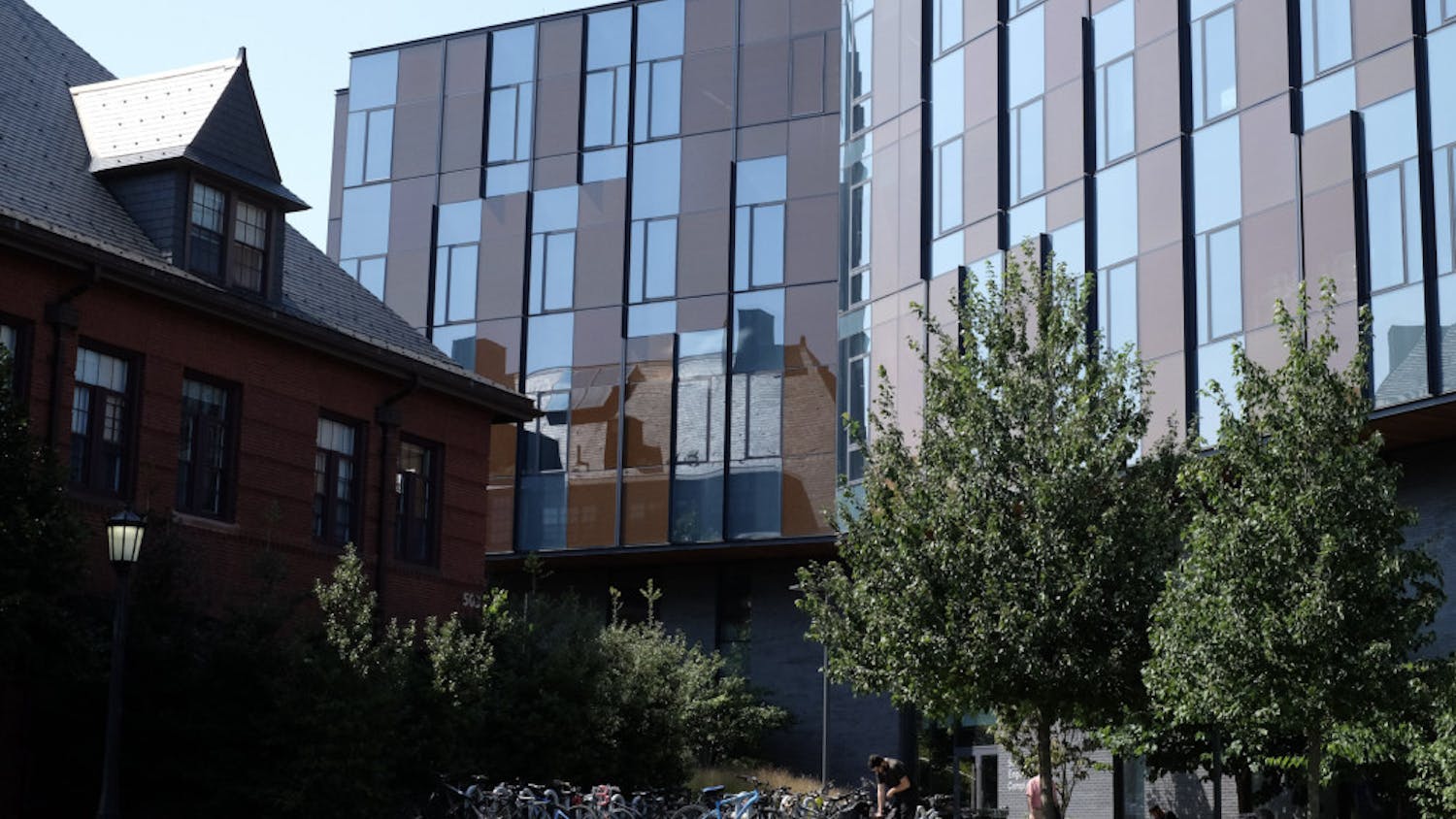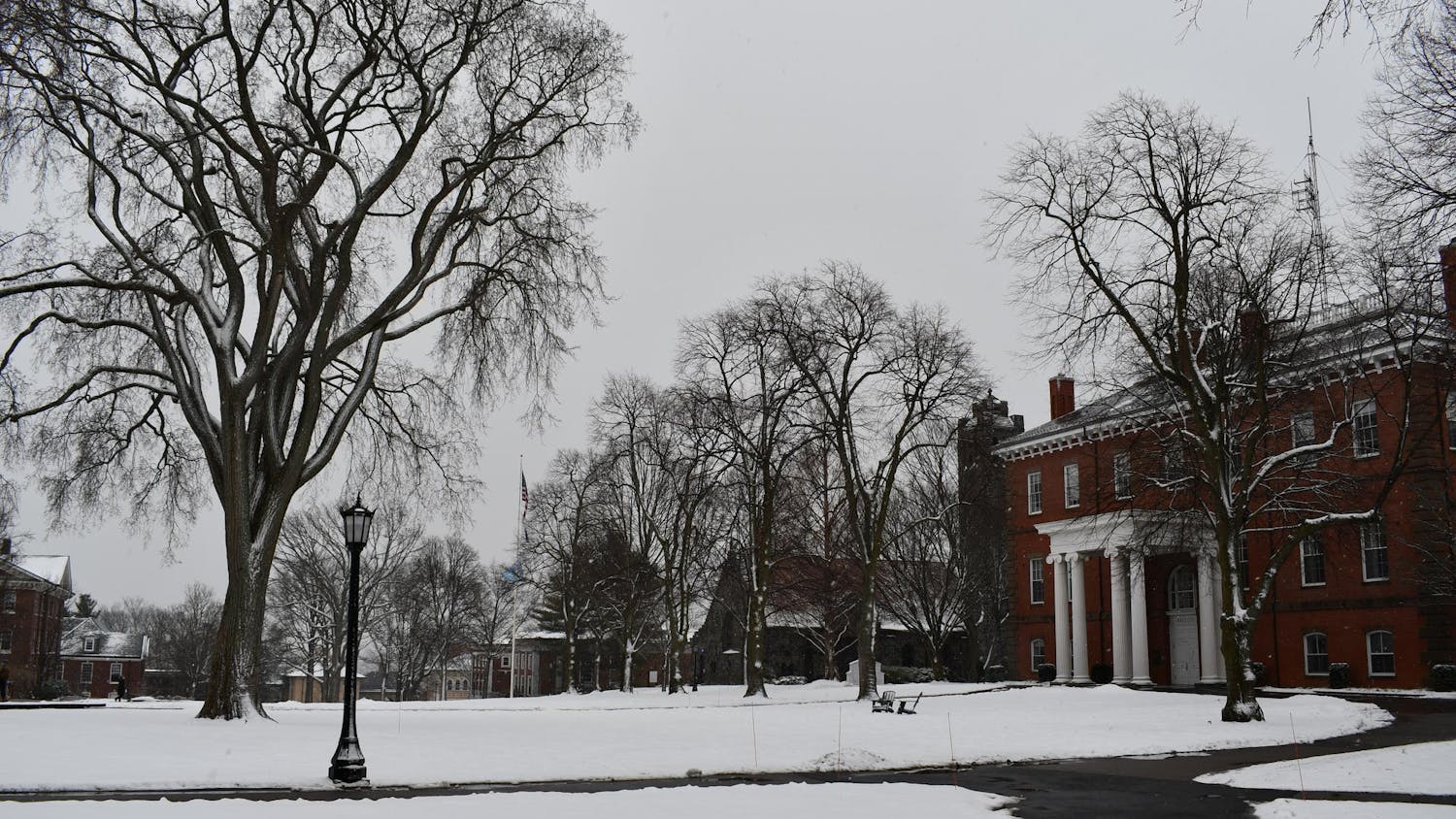Tufts University and 32BJ Service Employees International Union (SEIU), the union representing facilities workers, finally reached an agreement regarding an unpopular schedule change. The agreement, which was made on Feb. 8, avoided a National Labor Relations Board (NLRB) hearing of the unfair labor practices charge the union filed, according to Eugenio Villasante, SEIU's regional communications manager.
In September 2016, five workers were moved from a Monday through Friday schedule to a Tuesday through Saturday schedule.SEIU argued that this change was made without giving the workers a fair opportunity to bargain, according to anAug. 31, 2016 Daily article.
The new agreement was reached after six months of negotiations among union officials, shop stewards, workers and representatives of the university. Under the agreement, workers currently on the Tuesday through Saturday shift will have a new path to return to a Monday through Friday schedule, according to Villasante.
“If any member of the Medford grounds crew (outside of the Tuesday through Saturday shift) terminates their employment for any reason (including retirement, termination and/or resignation), the university agrees to allow the most senior member of the Tuesday through Saturday crew to bid for that position and return to a Monday through Friday shift,” Villasante told the Daily in an email.
This would mean that once a Monday through Friday worker leaves, the position would first be offered to the most senior Thursday through Saturday worker before being opened up to the general public.
Jack Ng, a driver, is the most senior member of the Saturday crew and thus would be the first worker eligible to switch shifts. He said that if given the opportunity, he would make the switch.
“I don’t mind [the Saturday shift] as much as I did in the beginning, but I think I would prefer to go back to Monday through Friday,” Ng said.
However, he expressed concern that if he were switched to the Monday through Friday schedule, it might not be a permanent change.
“I’ve heard rumors that they might [add a Sunday shift],” he said. “If I had to make a choice between working the Saturday shift or the Sunday shift, I would rather do the Saturday in case I was forced to work on Sunday.”
Senior Facilities Director Stephen Nasson said that while there are currently no plans to create a Sunday shift, there is always a chance there will be further scheduling changes.
“As a department, we are continually assessing the university’s operational needs and, while we have no immediate plans to change the current work schedule for utility workers/drivers, updates to our work schedules are always a possibility,” Nasson told the Daily in an email.
Nasson said Tufts has the right to switch workers’ shifts.
“Consistent with the terms of our collective bargaining agreement, the university retains the right to assign facility employees to different shifts, as needed,” he wrote.
Additionally, workers who were placed on the Saturday shift will be compensated for the hardship the switch may have caused, according to Villasante.
“The university agrees to pay each member of the Tuesday through Saturday crew a special hardship payment in a single lump sum amount of $1,000 per person,” Villasante wrote.
Ng said that he had received this $1000 payment on his paycheck.
Finally, the agreement capped the Saturday crew at six people. Originally, the crew was to consist of seven workers, Villasante said.
One worker, who asked to remain anonymous due to concerns for his job, said he believes the agreement came about because the administration wanted to save itself from legal action and not because of a genuine understanding of workers’ concerns.
“[Management] had to do something because [they] were going to the labor board,” he said, referring to the unfair labor practice charge with NLRB. “It was kind of like, ‘let’s do this to shut them up.’ If [management] had their way they wouldn’t [have].”
However, Nasson wrote that he and other administrators were pleased to have come to an agreement with the union and that he was working to balance the needs of the university with workers’ concerns.
“I am glad that we were able to resolve this matter with the union,” Nasson wrote. "I am fortunate to have such a strong team of managers and employees supporting me in this effort, and in particular appreciate the understanding of the group that was impacted by this change.”
The worker, who is currently on the Monday through Friday shift, said Monday through Friday workers should have also been considered for hardship payment, as the scheduling change impacted them as well.
For example, with Saturday workers off on Monday and no additional overtime offered on that day, Monday through Friday workers often felt overworked on Mondays.
“We’re under a hardship because we’re short five guys on a Monday," he said. "So if you take five guys away from us and then someone goes on vacation or calls in sick, now we’re down even more guys. It creates more work."
In addition, he said that the scheduling change took away Saturday overtime opportunities for Monday through Friday workers and that workers should have been compensated for this loss in extra pay.
The worker, like several other facilities employees interviewed by the Daily, believes the real reason behind the schedule change was to cut costs on overtime pay.
“Everyone knows their logic," he said. "They’re trying to cut down on overtime."
Nasson counters that the purpose of the schedule change was to help the university with its operational needs on Saturdays.
“We created the Tuesday to Saturday shift to help with ... high-profile events and to provide enhanced grounds and specialized arborist services year-round, including de-icing and snow removal operations,” he said.
While an agreement may have been reached, Ng said that the hostility that has characterized relations between labor and management has not abated.
“I still get the feeling from the other guys that it’s pretty much the same,” he said, referring to the confrontational tone of manager-employee relations.
Tufts avoids NLRB hearing through agreement on schedule changes with facilities workers' union

A member of the university janitorial staff sweeps snow on March 14, 2017.





